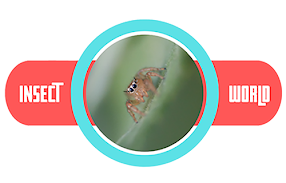 | |
Insects can have a significant economic impact, both positive and negative. Their effects on agriculture, forestry, and other industries can influence crop yields, cause damage to structures, and impact human health. Here's a brief overview of the economic impact of insects:
Positive Economic Impact:
Pollination Services:
Description: Insects, particularly bees, butterflies, and other pollinators, play a crucial role in pollinating flowering plants, including many food crops.
Economic Impact: The economic value of pollination services provided by insects is enormous, contributing to the production of fruits, vegetables, nuts, and seeds. Many crops depend on insect pollination, enhancing agricultural yields and supporting food production.
Silk Production:
Description: Silkworms, the larvae of the silk moth (Bombyx mori), are used in the production of silk.
Economic Impact: The silk industry has been a source of economic value for centuries. Silk production provides employment opportunities and contributes to the global textile market.
Honey Production:
Description: Honeybees are kept by beekeepers for honey production.
Economic Impact: Honey production is a significant industry, providing not only honey but also beeswax and other bee-related products. Beekeeping supports livelihoods and agricultural ecosystems.
Negative Economic Impact:
Crop Pests:
Description: Many insects, such as aphids, caterpillars, and beetles, can act as pests by feeding on crops and causing damage.
Economic Impact: Crop pests can lead to reduced yields, lower crop quality, and increased costs for pest control measures. Farmers may need to invest in pesticides or other management strategies to protect their crops.
Wood-Damaging Insects:
Description: Insects like termites and wood-boring beetles can damage wooden structures and timber.
Economic Impact: Wood-damaging insects can cause significant economic losses in the construction and forestry industries. Infestations may require costly repairs and treatments to prevent further damage.
Disease Vectors:
Description: Insects like mosquitoes, ticks, and fleas can act as vectors for diseases that affect humans, animals, and crops.
Economic Impact: Vector-borne diseases can have substantial economic consequences, affecting healthcare costs, livestock production, and agricultural productivity. In regions where diseases like malaria are prevalent, the economic burden can be particularly high.
Stored-Product Pests:
Description: Insects such as grain weevils and flour beetles can infest stored food products.
Economic Impact: Stored-product pests can lead to spoilage of food, contamination, and economic losses for food producers and distributors. They may require extensive pest management efforts to safeguard stored commodities.
Understanding the economic impact of insects is crucial for developing effective pest management strategies, promoting sustainable agricultural practices, and mitigating the negative consequences associated with insect-related issues.

0 Comments